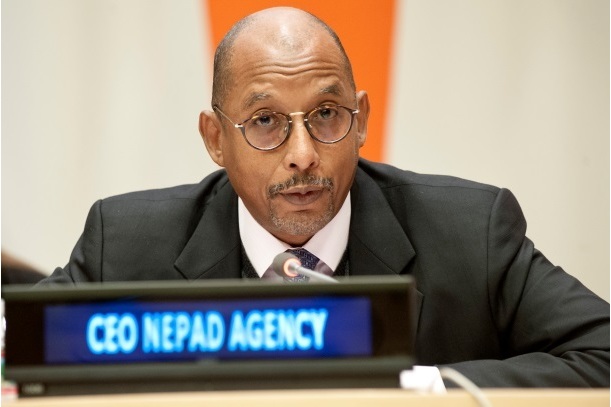NEPAD holds maiden edition of Africa Environment Partnership Platform

Summary
The goal of the AEPP is to promote sustainable environmental management through enhanced partnership.
The New Partnership for Africa’s Development (NEPAD), the technical body of the African Union (AU), is holding its first Africa Environment Partnership Platform (AEPP) in Nairobi, Kenya on September 20-21. The goal of the AEPP is to promote sustainable environmental management through enhanced partnership, coordinate and harmonise activities on the environment and pool resources at various levels.
According to a statement by NEPAD, the enactment of the Paris Agreement and adoption of the Sustainable Development Goals provide an opportunity for Africa to strategically address its environmental and sustainable development goals in line with Africa’s Agenda 2063.
Guided by the AU’s Environment Action Plan, the overall objectives of the AEPP are to place premium on partnership to establish synergies; create a vibrant global partnership to drive Africa’s environmental sustainability agenda; and strengthen the continental architectures for sustainable environment management.
According to China Daily, the United Nations Environment Programme (UNEP) Regional Director for Africa, Juliette Biao Koudenoukpo, said the transport sector is a major contributor to air pollution in Africa.
“African countries need to put in place air quality standards to help inform their policies,” she said at a forum on transforming mobility through innovative solutions in Nairobi, adding that the transport sector has been identified as the major source of greenhouse gas emissions and other pollutants that have significant effects on the environment and health.
Koudenoukpo attributed the current situation to the importation of fuel-inefficient second-hand vehicles, inadequate vehicle import regulation policies and low purchasing power of the African population.
The UNEP, through research and innovation, is working with African countries, notably, Rwanda, Kenya and Nigeria to implement programmes that seek to tackle poor air quality.
According to the Global Air Report recently released by the Health Effects Institute, Nigeria has the highest burden of fatalities from air pollution in Africa and fourth highest in the world with 150 deaths per 100,000 people attributable to air pollution.
Related
-
How to cope with climate change vulnerability in Nigeria
Nigeria is among the countries most vulnerable to climate change, despite its comparatively marginal contribution of ...
-
World Bank launches Climate Innovation Centre in Ghana
The technology hub will help over 100 climate entrepreneurs develop and commercialize innovative solutions to climate ...
-
AfDB hosts crucial meeting of MFI’s to advance environmental and social policies
The AfDB remains committed to climate change and the sustainable development agenda for Africa.










